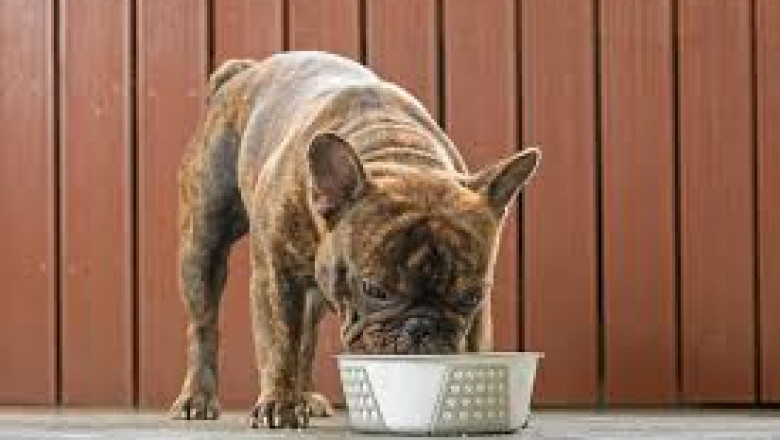views
A urinary tract infection (UTI) can cause significant discomfort for your beloved canine companion. As a responsible pet owner, I understand the concern and the need for effective solutions. This comprehensive guide explores nine proven treatments for dog UTIs, offering quick relief and long-term management strategies. Let's dive into ensuring your dog's urinary health and overall well-being.
Table of Contents
1- Understanding Dog UTIs
2- Cranberry Extract
3- D-Mannose
4- Probiotics
5- Apple Cider Vinegar
6- Increased Water Intake
7- Prescription Antibiotics
8- Pain Medication
9- Dietary Changes
10- Regular Vet Checkups
11- Key Takeaways
12- Conclusion
Understanding Dog UTIs
A urinary tract infection (UTI) in dogs occurs when bacteria invade the urinary tract, leading to inflammation and discomfort. Common symptoms include frequent urination, straining while urinating, blood in the urine, and increased thirst. Understanding the causes and recognizing these symptoms early is crucial for effective dog urinary tract infection treatment.
1- Cranberry Extract
Cranberry extract is a popular natural remedy for UTIs in dogs. It contains compounds that prevent bacteria from adhering to the walls of the urinary tract. Studies suggest that cranberry extract can reduce the recurrence of UTIs, making it a valuable addition to your dog's treatment plan.
Dosage: Administer cranberry extract according to the product label or your veterinarian's instructions.
2- D-Mannose
D-Mannose is a type of sugar that can help prevent bacteria, particularly E. coli, from sticking to the urinary tract lining. This allows the bacteria to be flushed out during urination. I've found D-Mannose to be a highly effective supplement for managing and preventing UTIs in dogs.
Dosage: Consult your vet for the appropriate dosage based on your dog's size and condition.
3- Probiotics
Probiotics are beneficial bacteria that support a healthy gut microbiome, which indirectly aids in preventing UTIs. A balanced gut can strengthen the immune system and reduce the risk of bacterial infections. I often recommend probiotics as part of a holistic approach to dog urinary tract infection treatment.
Dosage: Choose a probiotic formulated for dogs and follow the recommended dosage on the label.
4- Apple Cider Vinegar
Apple cider vinegar (ACV) is believed to help balance the pH levels in your dog's urine, creating an environment less conducive to bacterial growth. While not a direct treatment, ACV can be a supportive measure. However, it's essential to use it cautiously and in diluted form.
Dosage: Add a teaspoon of diluted ACV to your dog's water bowl. Monitor for any adverse reactions.
"A healthy gut is the foundation of a healthy pet." - Dr. Jane GoodPet
5- Increased Water Intake
Encouraging your dog to drink more water is a simple yet effective way to help flush out bacteria from the urinary tract. Adequate hydration dilutes the urine, making it less irritating and reducing the concentration of bacteria. I always emphasize the importance of fresh, clean water as a primary component of dog urinary tract infection treatment.
Tips: Provide multiple water sources, use a pet water fountain, or add water to your dog's food.
6- Prescription Antibiotics
In many cases, prescription antibiotics are necessary to effectively treat a dog UTI. Your veterinarian will perform a urine culture to identify the specific bacteria causing the infection and prescribe the appropriate antibiotic. It's crucial to complete the entire course of antibiotics, even if your dog's symptoms improve.
Caution: Never administer antibiotics without a veterinarian's prescription.
7- Pain Medication
UTIs can be painful for dogs, causing discomfort and distress. Your veterinarian may prescribe pain medication to alleviate these symptoms. Always follow your vet's instructions carefully and monitor your dog for any side effects.
Note: Pain medication should only be administered under veterinary supervision.
8- Dietary Changes
Certain dietary changes can support urinary health and prevent UTIs. A diet low in phosphorus and magnesium can help reduce the formation of crystals in the urine. I often recommend consulting with a veterinary nutritionist to create a tailored diet plan for dogs prone to UTIs.
Recommendation: Discuss dietary options with your vet.
9- Regular Vet Checkups
Regular veterinary checkups are essential for monitoring your dog's overall health and detecting potential issues early. Routine urine tests can help identify UTIs before they become severe. I advise scheduling regular checkups to ensure proactive dog urinary tract infection treatment and prevention.
Tip: Schedule annual or bi-annual vet visits.
Key Takeaways
1- Cranberry extract and D-Mannose can help prevent bacteria from adhering to the urinary tract.
2- Probiotics support a healthy gut microbiome, which aids in preventing UTIs.
3- Increased water intake is crucial for flushing out bacteria.
4- Prescription antibiotics are often necessary for treating UTIs.
5- Regular vet checkups are essential for early detection and prevention.
Conclusion
Dealing with a dog UTI can be challenging, but with the right approach, you can provide your furry friend with effective relief. By incorporating these nine proven treatments—including cranberry extract, D-Mannose, probiotics, increased water intake, and prescription antibiotics—you can manage and prevent UTIs, ensuring your dog's urinary health and overall well-being. Remember to always consult with your veterinarian for personalized advice and treatment plans. As I always say, proactive care is the best care.














Comments
0 comment